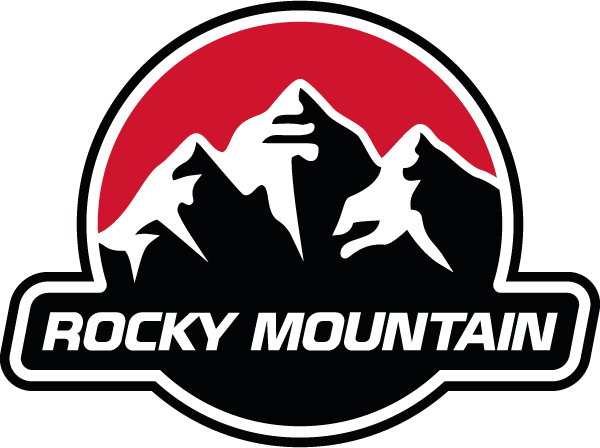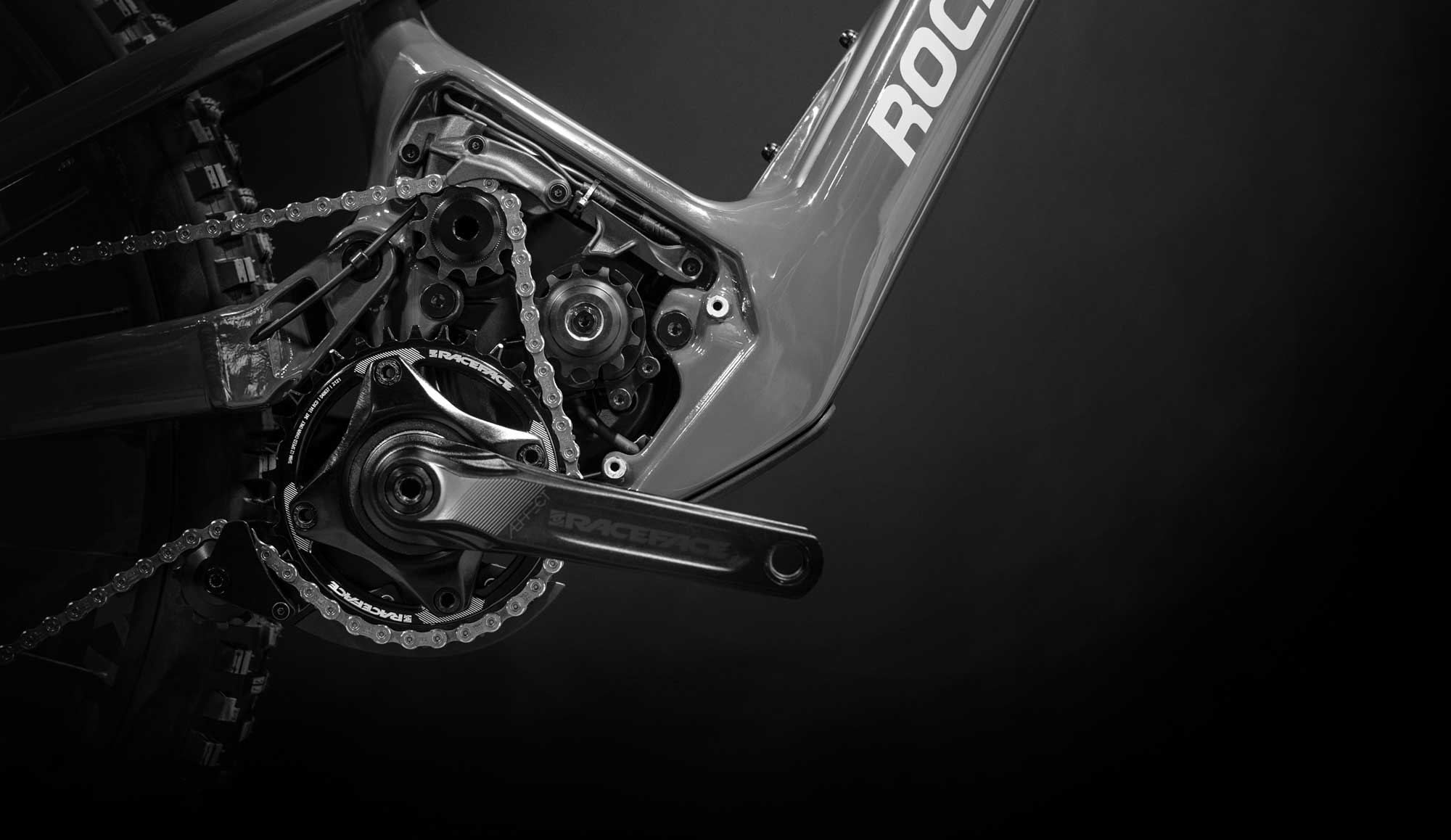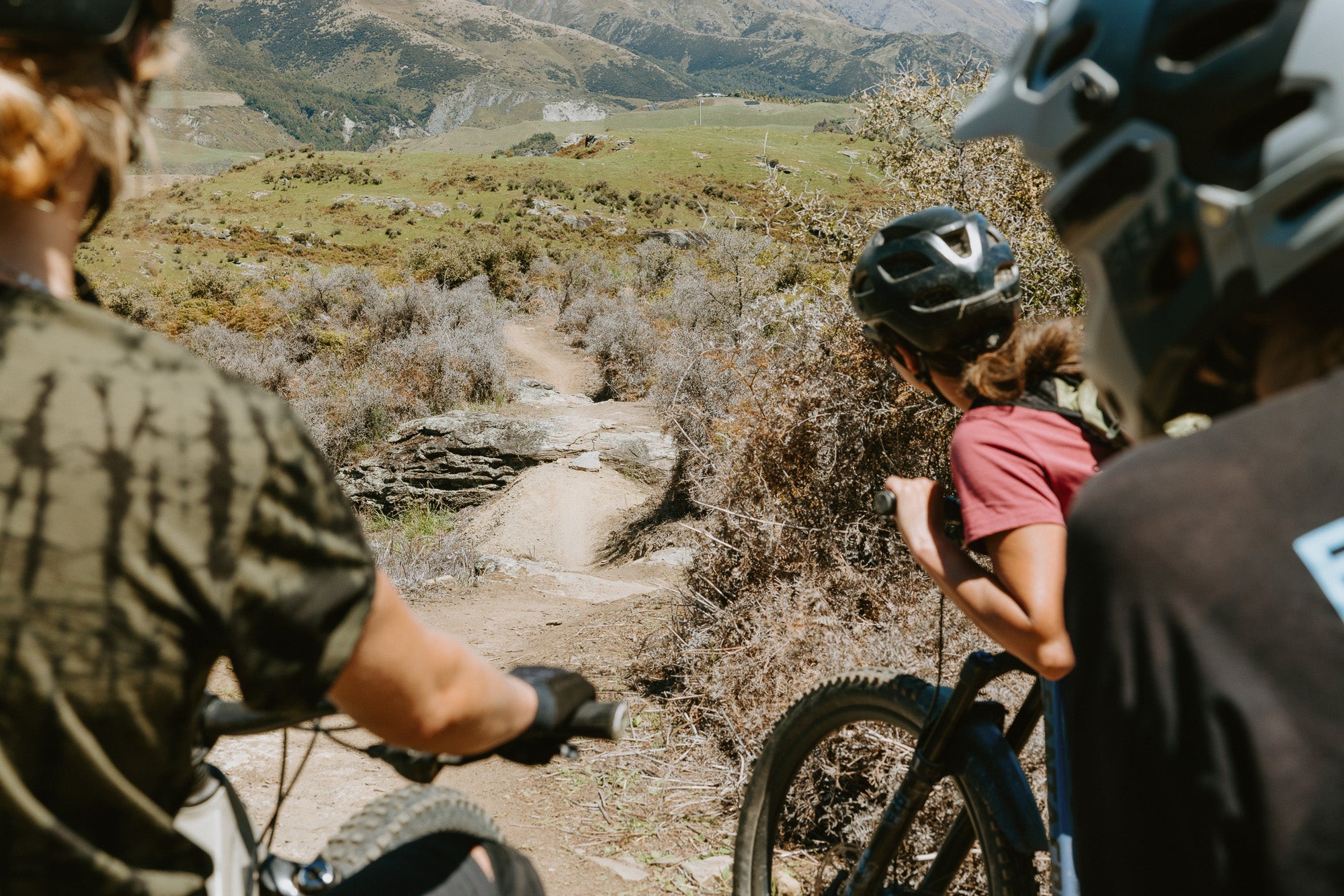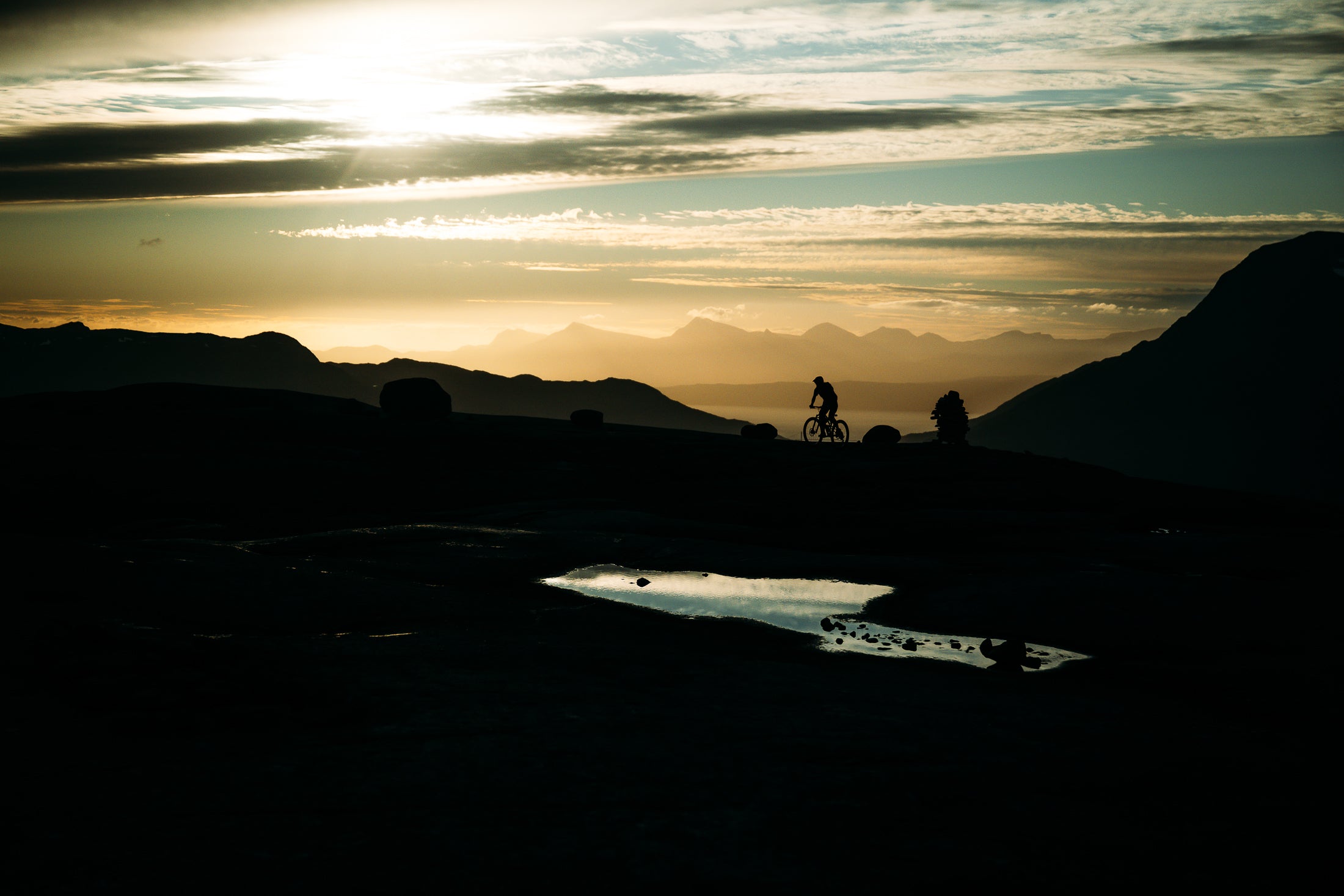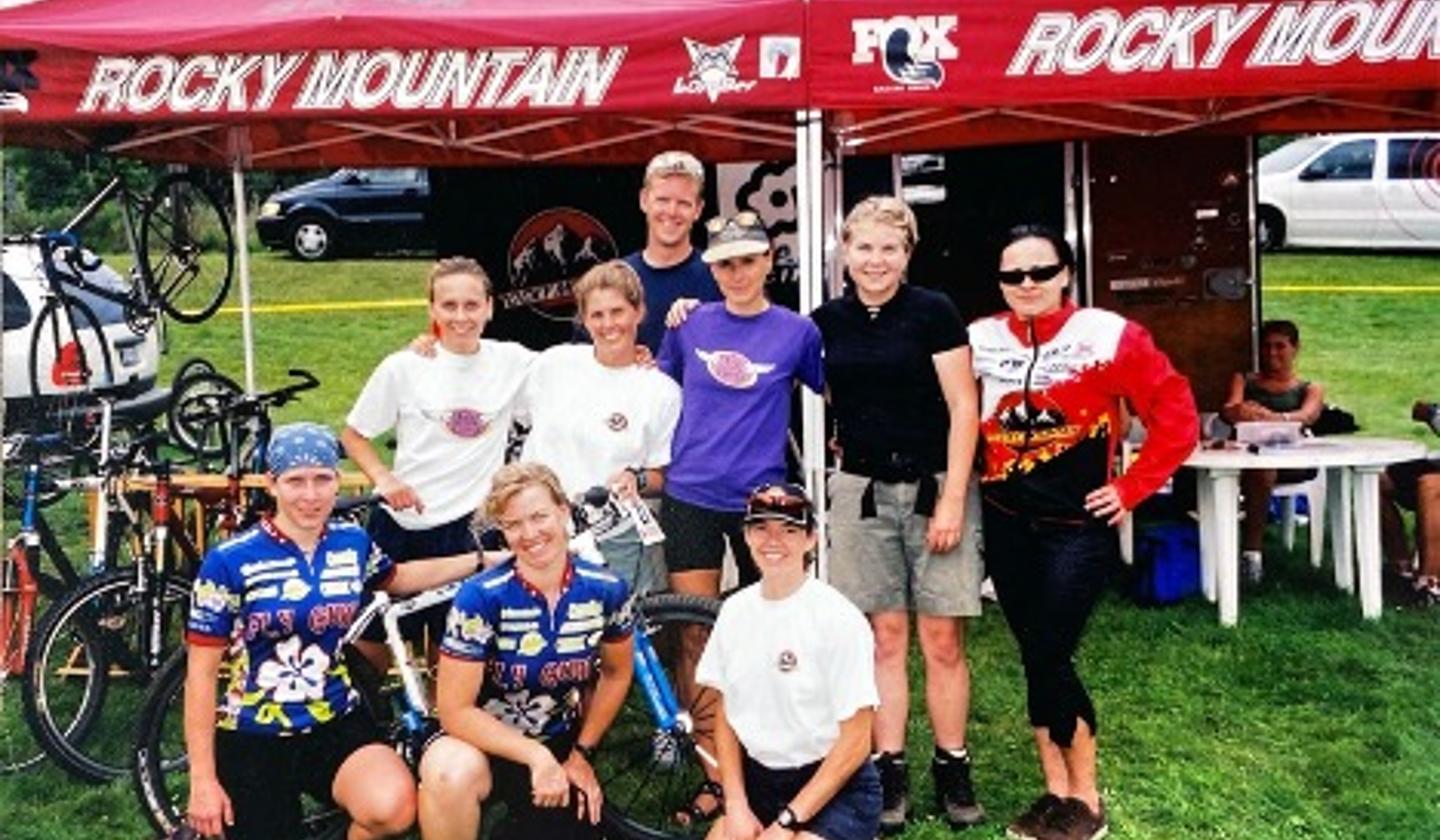

But in 1997, Scott and Shane of Squire John’s got a call.
“I cold called a bunch of shops looking for support, and got nothing,” recalls Michelle Ward. “I was pretty downhearted at that point.”
Because in that year from her Jasper apartment, Michelle had an idea for something that didn’t yet exist. To state the obvious, 1997 was a long time ago. The “scene” was entirely different back then—especially for women.
“It was hard. I remember going to a couple events where it would be me and 300 men. It was intimidating.” An idea percolated in Michelle’s brain—an inclusive, accessible race and riding team for women, run by women. Wondering if others felt similar, she sent out a survey (a big feat in those days—forget Google Forms, stamps, envelopes, and fax machines were all involved). Michelle got a 70% return rate—the interest for what would become Fly Gurlz was there.

But shop support was hard to find. Cold call after cold call was a dud. Only Squire John’s called Michelle back. “I remember running around the apartment crying. It was pretty magical.” Unlocking shop support might not seem groundbreaking now, but think back. The 90s was a time when the industry seemingly only invested in elite athletes doing the raddest stuff possible for the raddest VHS tapes possible. Michelle was on an entirely different wavelength. “The vision that I had was the everyday all shapes, all sizes, all ages kind of model. It really was bulldozing a trail that hadn’t been done before.”
Bulldoze the Fly Gurlz did. With Squire John’s on board, they soon hooked Fly Gurlz up with Rocky Mountain. They set up that original crew of eight with minty fresh Rocky Mountain Blizzards. But that’s just where things kicked off.
Within three years, what started as a race crew grew to a massive community pillar. Learn to ride clinics saw over 200 women showing up. Johnson & Johnson/Motrin Brand signed up as title sponsors. TV appearances on Breakfast TV and WTSN were next. Hundreds of women joined Fly Gurlz clubs across Ontario. And as the first all-women’s mountain bike trade team in North America, Fly Gurlz racers from across Canada lit things up season after season. Maybe it was the emphasis on inclusivity and accessibility. Maybe it was the “don’t take yourself too seriously” vibe. Or maybe it was the “can’t miss it” Hawaiian themed jerseys. Whatever it was, it was lightning in a bottle.

In 2009 after 12 years of big things, Fly Gurlz wrapped things up. As Michelle puts it, “the time for me personally had come.” That’s fair enough—and while Michelle is adamant that Fly Gurlz was always a collective, it’s difficult to ignore the role that a core, central figure plays in maintaining momentum.
Looking around, it’s easy to see the influence of Fly Gurlz across Canada (Trail Trybe and Shred Sisters, who we work with, to name a couple). That “get more folks riding than ever” approach might be a no-brainer now, but that wasn’t the case in 1997. Michelle was decades ahead of the curve, and from the get-go, Squire John’s understood the big value in that vision. That like-mindedness remains through to today—Michelle currently runs Squire John’s marketing and branding.
As a Rocky Mountain Dealer for almost three decades, we’re going to be a bit biased in calling Squire John’s a legendary shop. Any shop that can keep growing and scaling since 1969 gets huge kudos. But when a shop that can also play a pivotal role in developing a game-changing race team and community initiative? Well, it’s hard to think otherwise.
Click here to follow Squire John's


